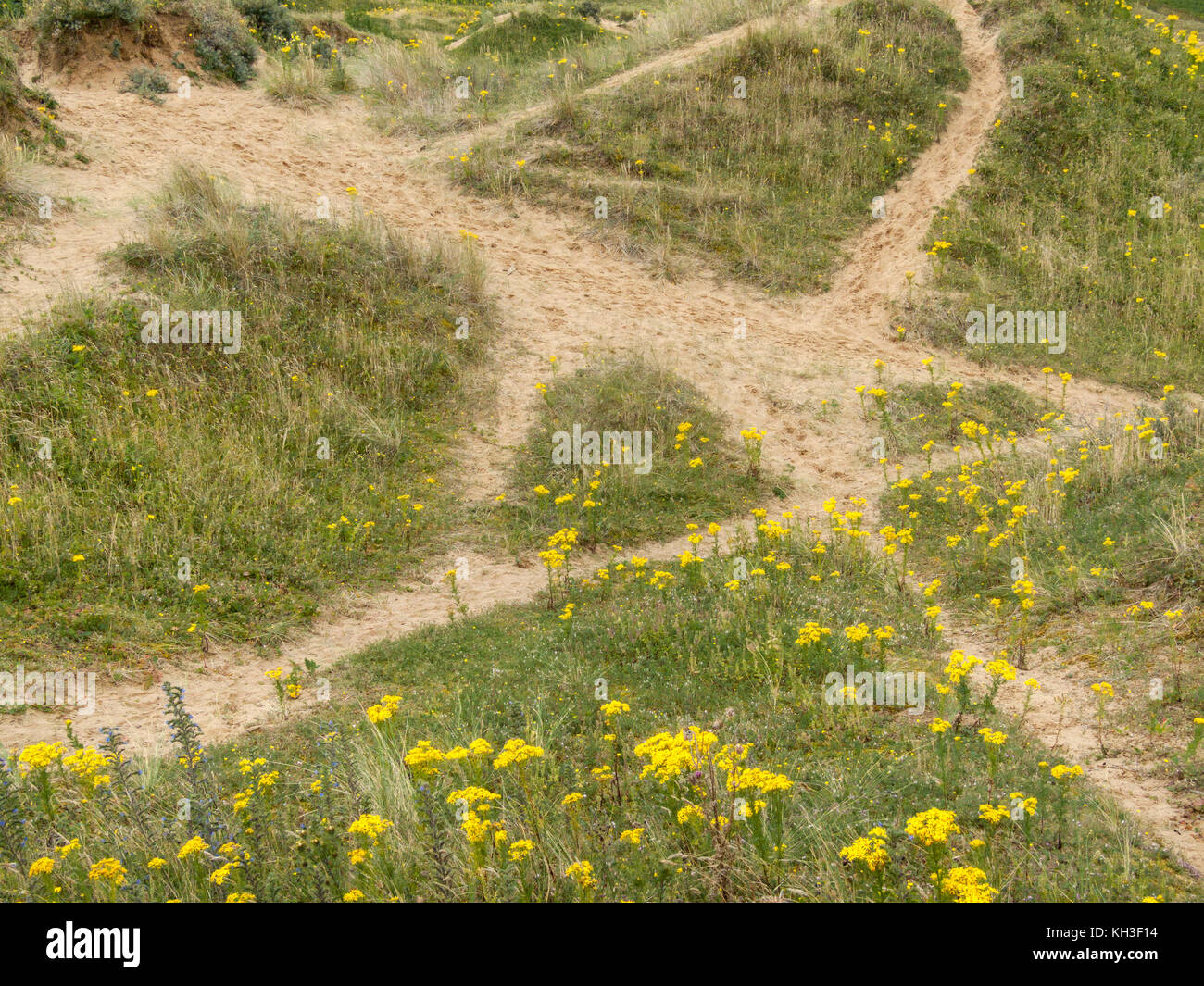Dune Metaphor: Unlocking The Deeper Layers Of Frank Herbert's Masterpiece
Mar 24 2025
Frank Herbert's "Dune" is more than just a science fiction novel; it is a profound exploration of metaphors that resonate with readers across generations. The intricate layers of meaning embedded within its narrative have made it a timeless classic, offering insights into humanity, power, and the environment. This article delves deep into the heart of Dune's metaphors, unraveling their significance and relevance in both literary and real-world contexts.
Since its publication in 1965, "Dune" has captivated audiences worldwide with its rich storytelling and complex characters. At its core lies an intricate web of metaphors that transcend the boundaries of traditional science fiction. These metaphors serve as a mirror reflecting the challenges and dilemmas faced by humanity, making the novel not only a work of fiction but also a philosophical treatise.
Our exploration of the "Dune metaphor" will take you on a journey through the sands of Arrakis, uncovering the hidden meanings behind the desert planet, its people, and its ecology. By understanding these metaphors, we can gain a deeper appreciation of the novel and its enduring legacy in literature and popular culture.
Read also:Discovering The Inspiring Journey Of A 300 Lb Lady Strength Resilience And Empowerment
Table of Contents
- Introduction to Dune Metaphor
- The Desert Planet as a Metaphor
- Ecology and Sustainability: A Metaphorical Perspective
- Power Struggles and Political Metaphors
- Religious Symbolism and Metaphors
- Character Metaphors: Paul Atreides and Beyond
- Water Scarcity as a Metaphor
- Sandworms: Guardians of the Desert
- Predictions for the Future: Metaphors in Action
- Conclusion: The Enduring Legacy of Dune Metaphor
Introduction to Dune Metaphor
Frank Herbert's "Dune" is often hailed as one of the greatest works of science fiction, and rightly so. The novel is a tapestry of ideas, woven together with intricate metaphors that explore the complexities of human existence. The "Dune metaphor" serves as a lens through which we can examine the themes of power, ecology, religion, and identity that permeate the narrative.
The desert planet of Arrakis is not merely a backdrop for the story; it is a metaphor in itself, representing the fragility and resilience of life in harsh environments. Through the lens of this metaphor, Herbert invites readers to reflect on the delicate balance between human civilization and the natural world. The struggles of the Fremen people, the ecological transformations of Arrakis, and the political machinations of the Great Houses all contribute to a rich tapestry of metaphors that make "Dune" a truly remarkable work of literature.
The Desert Planet as a Metaphor
Arrakis: A Symbol of Survival
The desert planet of Arrakis stands as one of the most powerful metaphors in "Dune." It symbolizes the resilience of life in the face of adversity, as well as the fragility of ecosystems when subjected to human interference. The harsh conditions of Arrakis mirror the challenges faced by humanity in preserving our planet's resources while striving for progress.
Herbert uses the desert landscape to explore themes of survival and adaptation. The Fremen people, who have adapted to the harsh environment of Arrakis, embody the human spirit's ability to thrive even in the most inhospitable conditions. Their way of life serves as a metaphor for the importance of living in harmony with nature rather than attempting to dominate it.
Ecology and Sustainability: A Metaphorical Perspective
The Greening of Arrakis
One of the most significant metaphors in "Dune" is the ecological transformation of Arrakis. The efforts to "green" the desert planet serve as a metaphor for humanity's ongoing struggle to balance development with environmental sustainability. Through the character of Liet-Kynes, Herbert highlights the importance of understanding and respecting the natural world.
The metaphor of the "greening" process underscores the need for long-term thinking and responsible stewardship of our planet's resources. It also raises questions about the ethical implications of altering ecosystems for human benefit, encouraging readers to consider the consequences of our actions on the environment.
Read also:Acorn Brewing Exploring The Rise Of A Unique Craft Beer Brand
Power Struggles and Political Metaphors
Metaphors of Power and Control
"Dune" is rife with political metaphors that explore the dynamics of power and control. The struggle for dominance over Arrakis serves as a metaphor for the political machinations that shape the course of history. The rivalries between the Atreides, Harkonnen, and Emperor's forces reflect the complexities of power relations in the real world.
Through these metaphors, Herbert critiques the corrupting influence of power and the dangers of unchecked ambition. The rise and fall of Paul Atreides as the Kwisatz Haderach serves as a cautionary tale about the perils of absolute power and the importance of humility and wisdom in leadership.
Religious Symbolism and Metaphors
Religion as a Metaphor for Human Belief
Religious symbolism plays a central role in "Dune," with metaphors abound that explore the nature of faith and belief. The transformation of Paul Atreides into a messianic figure serves as a metaphor for the power of religious belief to shape human destiny. The novel examines the ways in which religion can inspire both unity and division, offering insights into the complex relationship between spirituality and politics.
Through the lens of these metaphors, Herbert challenges readers to reflect on the role of religion in shaping human society and the potential dangers of blind faith. The Fremen's adoption of Paul as their prophesied leader highlights the transformative power of belief, while also raising questions about the ethics of manipulating religious sentiment for political gain.
Character Metaphors: Paul Atreides and Beyond
Paul Atreides: A Metaphor for Human Potential
Paul Atreides, the protagonist of "Dune," is himself a metaphor for the potential of humanity to achieve greatness while grappling with the burdens of power and responsibility. His journey from a young nobleman to a messianic figure reflects the challenges faced by individuals who rise to positions of leadership.
Other characters in the novel, such as Lady Jessica, Duncan Idaho, and Chani, also serve as metaphors for various aspects of human experience. Their struggles and triumphs offer insights into the complexities of identity, loyalty, and sacrifice.
Water Scarcity as a Metaphor
The Value of Water in a Harsh World
Water scarcity is a central theme in "Dune," serving as a metaphor for the importance of resource management and conservation. The Fremen's reverence for water reflects their deep understanding of its value in a desert environment. This metaphor extends beyond the fictional world of Arrakis, offering lessons for real-world challenges related to water scarcity and environmental degradation.
Herbert uses the metaphor of water to emphasize the need for sustainable practices and the importance of respecting the natural limits of our planet's resources. The Fremen's innovative approaches to water conservation serve as a model for addressing similar challenges in our own world.
Sandworms: Guardians of the Desert
A Metaphor for Nature's Power
The sandworms of Arrakis are among the most iconic elements of "Dune," serving as a metaphor for the power and mystery of nature. These colossal creatures represent the untamed forces of the natural world, reminding us of the limits of human control over the environment.
Through the metaphor of the sandworms, Herbert explores the relationship between humanity and the natural world, emphasizing the need for respect and understanding in our interactions with the ecosystems that sustain us. The sandworms' role in the production of the spice melange highlights the interconnectedness of all life forms and the importance of maintaining ecological balance.
Predictions for the Future: Metaphors in Action
The Relevance of Dune Metaphors Today
The metaphors of "Dune" remain relevant today, offering insights into the challenges facing humanity in the 21st century. Issues such as climate change, resource scarcity, and political conflict are mirrored in the novel's exploration of the desert planet and its inhabitants. By examining these metaphors, we can gain a deeper understanding of the forces shaping our world and the potential paths forward.
Herbert's vision of the future serves as both a warning and a call to action, urging us to confront the challenges ahead with wisdom and foresight. The metaphors of "Dune" challenge us to think critically about our relationship with the environment and the responsibilities that come with power and privilege.
Conclusion: The Enduring Legacy of Dune Metaphor
In conclusion, the "Dune metaphor" is a powerful tool for exploring the complexities of human existence. Through its rich tapestry of metaphors, Frank Herbert's masterpiece offers insights into the challenges and dilemmas faced by humanity, both in the fictional world of Arrakis and in our own reality. The novel's exploration of power, ecology, religion, and identity continues to resonate with readers across generations, cementing its place as a timeless classic of science fiction.
We invite you to reflect on the metaphors of "Dune" and consider their relevance to the world we live in today. Share your thoughts and insights in the comments below, and explore other articles on our site for further exploration of the themes and ideas presented in this article. Together, let us continue the conversation about the enduring legacy of Frank Herbert's masterpiece.
References:
- Herbert, F. (1965). Dune. Chilton Books.
- Jameson, F. (1981). The Political Unconscious: Narrative as a Socially Symbolic Act. Cornell University Press.
- Attebery, B. (1992). Strategies of Fantasy. Indiana University Press.


